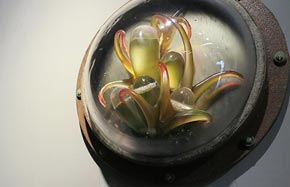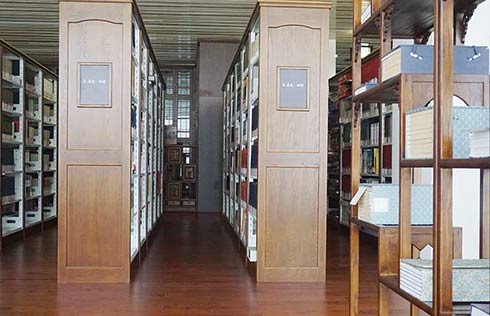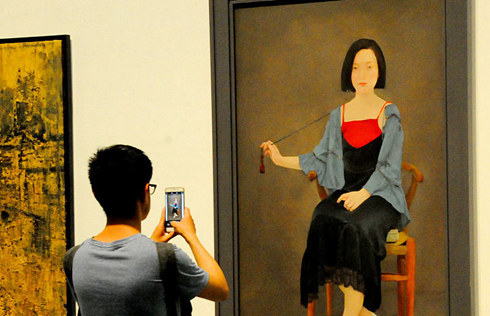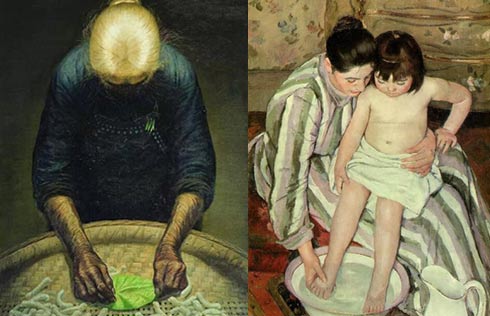China launches its first national youth orchestra
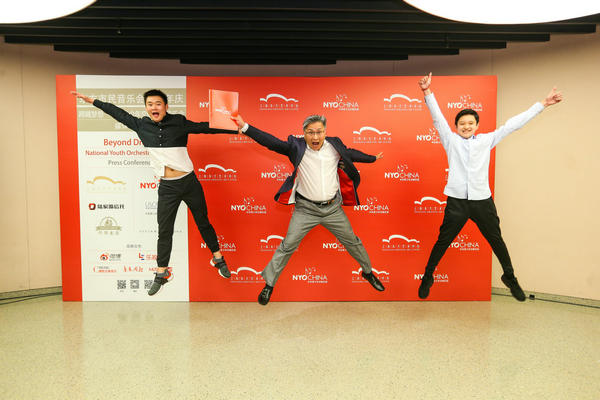 |
|
Horn master Han Xiaoming (center) and two members of the National Youth Orchestra of China pose at a Shanghai event. [Photo provided to China Daily] |
The first National Youth Orchestra of China announced its establishment and upcoming national tour in Shanghai earlier this month.
The musicians-53 female and 52 male, ages 14 to 21-are Chinese citizens, though some are studying overseas.
After a two-week training in the United States and a concert at Carnegie Hall, they will perform in Beijing, Shanghai and Suzhou, in Jiangsu province, in July.
The young musicians have been picked by a jury that consists of renowned musicians, conductors and professionals, from hundreds of applicants through a five-month process.
Quite a few music institutions in China have their own youth orchestras, but this is the first time an orchestra is bringing together young Chinese musicians from all over the world to represent their common cultural heritage, according to Danielle Accettola, co-founder of China's national youth orchestra.
Accettola was born in China but moved to the US. Two years ago, after following that country's national youth orchestra on a China tour, she decided to introduce the concept here.
Thanks to sponsorship from the Shanghai-based Wailian Group, members of China's youth orchestra will head to the US in July on full scholarship. For two weeks they will rehearse together, attend master classes and workshops, and interact with the national youth orchestra of the US.
Han Xiaoming, a French horn master with the German Radio Philharmonic Orchestra, will be one of the mentors for the members of Chinese orchestra. He says the founding of this body marks a breakthrough in China's music education.
"In five to 10 years, some of the young musicians may play an important role in the development of symphony music in China," says Han.
Most music conservatories in China focus their syllabuses on solo performances, while in reality, no more than 5 percent of the graduates are able to pursue a career as soloists, he says.
More should be done to train youngsters to play in orchestras.
He suggests conservatories in China emphasize teaching symphonic playing.
"Students should learn to play orchestra pieces systematically from Bach to Haydn starting from their freshman years," he says.
This should be taken seriously when a music syllabus in China is designed.
"In fact, few professors at the music conservatories have any experience playing in an orchestra," he says.
Two of the new members of the national youth orchestra met the media in Shanghai.
Ouyang Beili, 14, plays the French horn, and Xie Liyuan, 17, plays the violin. Both are students at the middle school attached to the Shanghai Conservatory of Music.
They are members of the school orchestra and believe the learning experience in the new national orchestra will improve their understanding of rhythm, speed and expression in playing for orchestras.
Han hopes that the project will go beyond the two-week training and concert tour, and develop into a long-term initiative to achieve extensive impact on music education in the country.
Frank Mazurco, the former Steinway & Sons executive vice-president for the Americas, is a senior adviser with National Youth Orchestra of China.
"I witnessed a decline of piano playing around the world, except for in China," he says in Shanghai. "When I entered the business in 1972, China made up no more than a fraction of Steinway's market. Today nearly 50 million children in China are playing the piano."




